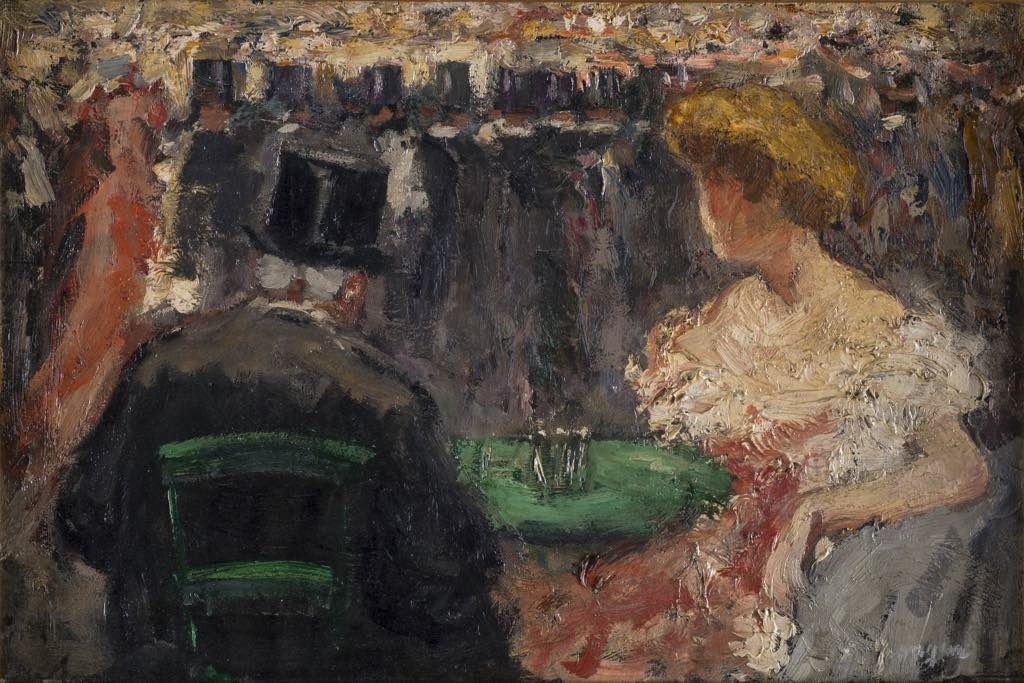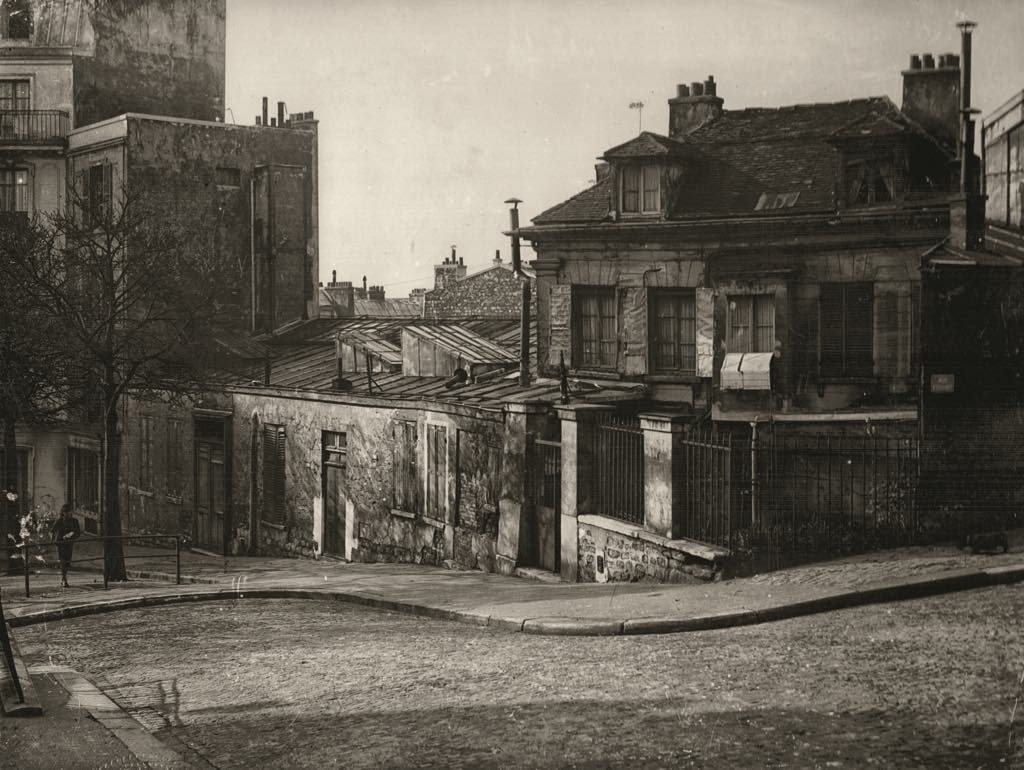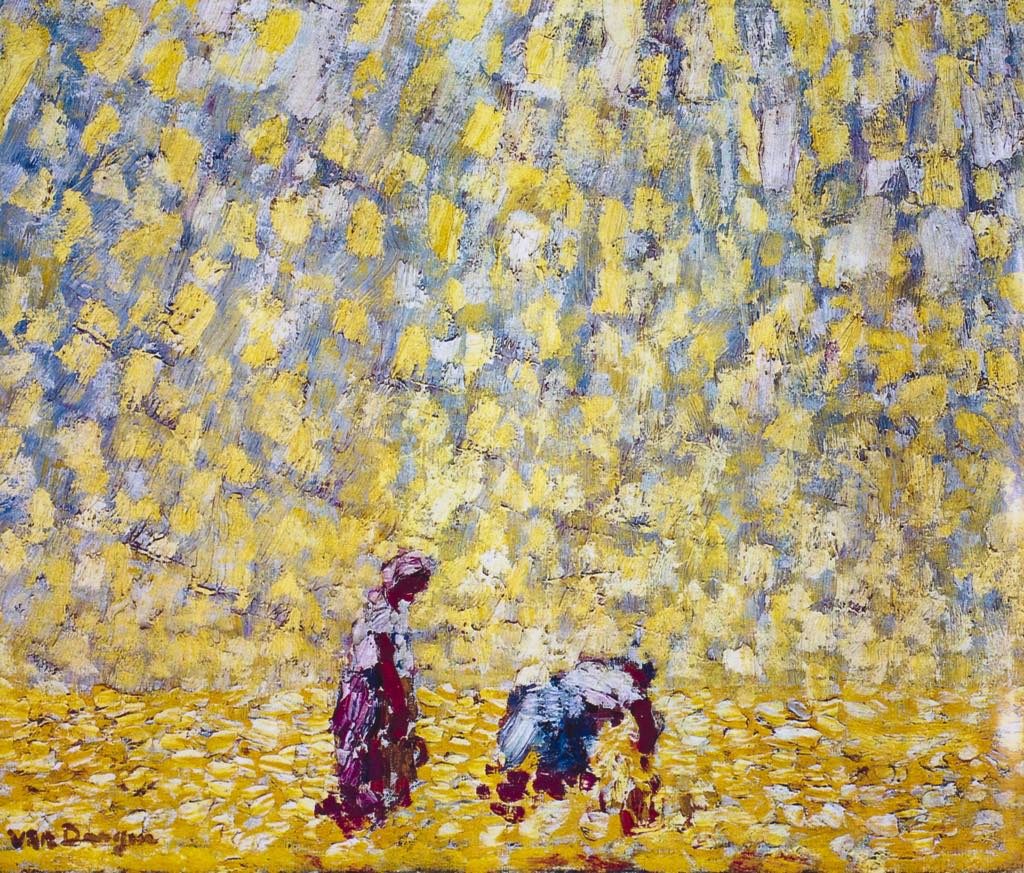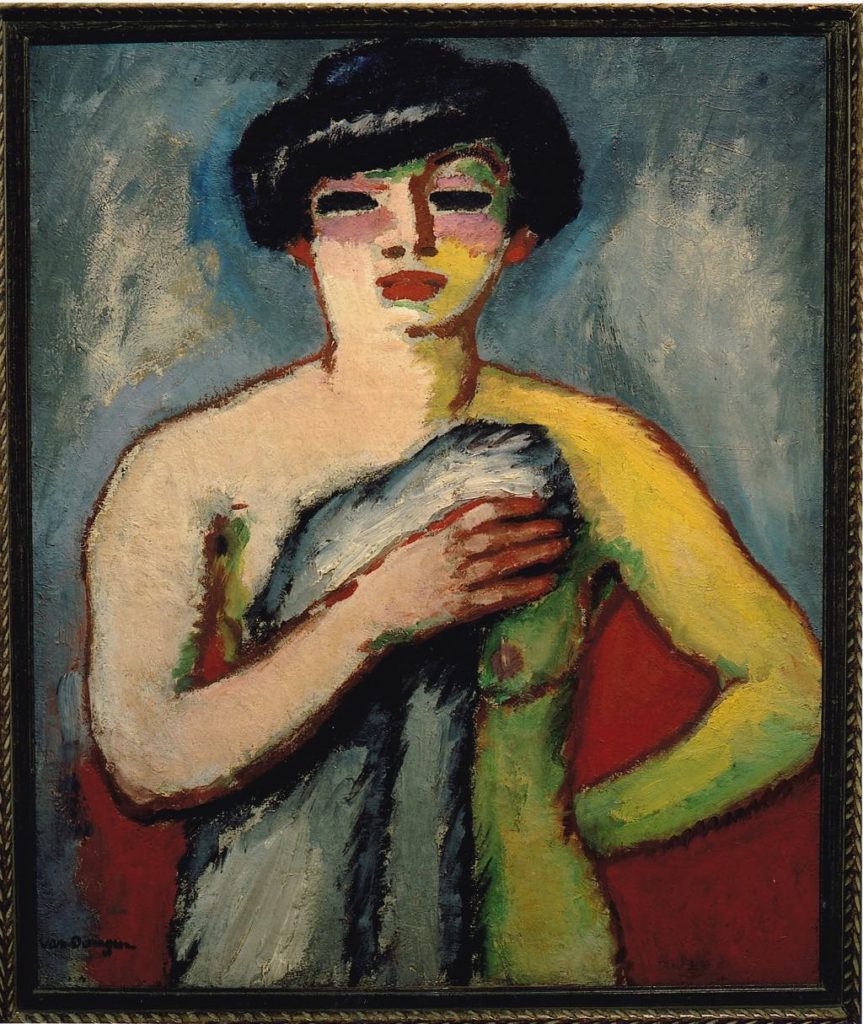Last week, we reviewed the exhibition “Dutch Artists in Paris: 1789-1914” at the Petit Palais, and this week we have a show on one Dutch artist (and friends) in Montmartre: “Van Dongen and the Bateau Lavoir,” at the Musée de Montmartre.
When he moved permanently to Paris from Rotterdam in 1899, van Dongen settled in Montmartre in the company of many other young artists of the day and adopted anarchist views, which he expressed through his illustrations for publications like La Revue Blanche and L’Assiette au Beurre, some of which are on show here.
The paintings from his early years in Paris veer from pretty, Utrillo-like Montmartre streetscapes (“Maison à Montmartre,” 1904) to such nightlife scenes as the Lautrec-influenced “Absinthe Drinker” (1902-03), in which a drunken lady, sitting most inelegantly on the street, as if she has just fallen on her bottom, flirts with a death’s head in a top hat.
The subject of nightlife continued to fascinate van Dongen throughout his long, successful career, but during this period, he seemed more interested in its sordid side, depicting faceless people in evening dress in the street or mooning about drunkenly in bars.
In 1905, van Dongen and his girlfriend, Augusta Preitinger, known as Guus, moved into the Bateau Lavoir, the famed studio building inhabited at the time by the young wolves of the art world, among them Picasso, Modigliani, Juan Gris and Max Jacob.
One section of the show presents works done in the company of another Dutch couple who lived in the Bateau Lavoir, Otto van Rees and Adya Dutilh, both of whom were artists. Van Dongen’s most notable painting from a stay in the country with them is “Lieuses” (1905), a luminous work that clearly shows the influence of his departed compatriot Vincent Van Gogh, with its pointillistic approach to the bucolic scene of two women, one dressed in red and the other in blue, binding sheaves of hay in a field under brilliant sunshine.
Among the stronger works in the exhibitiom are “Le Carrousel,” (Manège de Cochons)” (c. 1905), which captures the whirlwind of movement of a merry-go-round; a semi-nude portrait of Picasso’s lover Fernande Olivier, made when they all lived in the Bateau Lavoir (according to Gertrude Stein, this painting led to words between the two rival artists); the powerful “Portrait of an Old Clown” (c. 1909-10), part of a series focusing on the Cirque Medrano; and “Portrait de Madame Marie-Thérèse Raulet” (c. 1925-30), pictured at the top of the page, a lovely depiction of a languid lady, which technically doesn’t belong in this exhibition since it was painted long after van Dongen moved away from Montmartre.
I have mixed feelings about van Dongen – I am repelled by his portraits of women with cartoonishly big eyes (of which there is only one in this show, “Deux Yeux,” from 1911) – and find his multiplicity of styles confusing, but then there are the wonderful paintings mentioned above.
While the selection of works in this show seems rather random (I imagine that it is difficult for a small museum like this to get loans of the best works), there are enough fine paintings here to make a special trip to the charming Musée de Montmartre worthwhile.
Favorite




